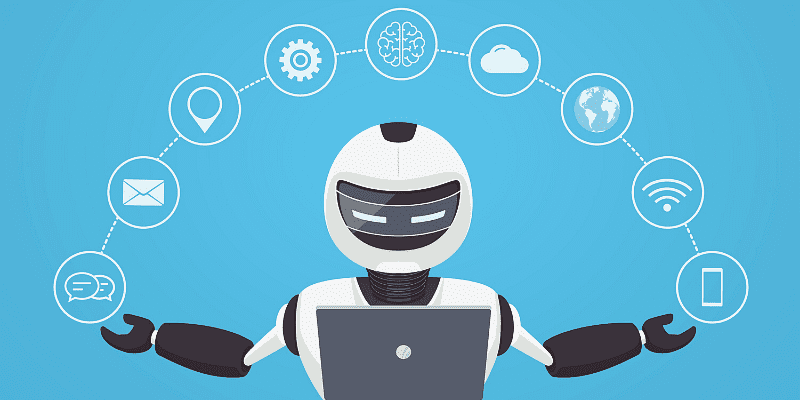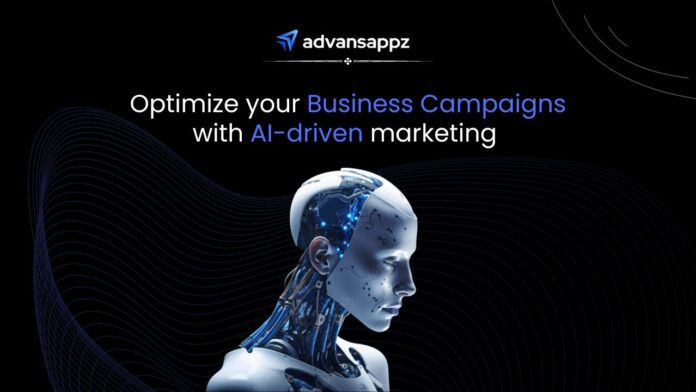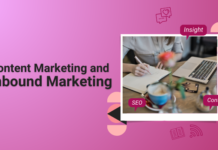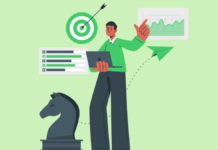In today’s competitive market, traditional marketing methods can’t consistently deliver the tailored experiences and effective campaigns that businesses need to succeed. But, the emergence of artificial intelligence (AI) has transformed the marketing industry. AI provides cutting-edge solutions that optimize campaigns and yield impressive outcomes.
According to Salesforce, 51% of marketers already use AI in some form, with an additional 27% planning to incorporate it in the next two years. The adoption of AI in marketing is rapidly growing, indicating its effectiveness and potential.
AI-driven marketing and expert AI consulting services present a transformative solution to overcome these challenges and optimize business campaigns.
Discover the advantages of implementing AI-driven marketing to improve your business campaigns. This article will also include some of the best ways to utilize AI-driven marketing and maximize its benefits effectively.
What is AI-Driven Marketing?
AI-driven marketing refers to using artificial intelligence technologies to enhance and automate various marketing processes. By leveraging machine learning algorithms, data analysis, and predictive modeling, AI empowers businesses to make data-driven decisions and create targeted marketing campaigns. Moreover, this technology can streamline marketing operations, improve customer engagement, and increase overall campaign performance.
Benefits of Utilizing AI for Effective Marketing
Utilizing AI for effective marketing offers numerous benefits for businesses. Here are some key advantages:
-
Data Analysis and Insights:
Businesses can gain valuable insights into customer behavior, preferences, and market trends with the help of AI algorithms. These algorithms enable brands to analyze vast amounts of data quickly and accurately, leading to informed decisions, new opportunities, and optimized marketing strategies in real-time.
-
Personalization at Scale:
AI empowers businesses to deliver personalized experiences to individual customers on a large scale. By leveraging machine learning algorithms, companies can tailor content, recommendations, and interactions based on customers’ unique characteristics and preferences. As a result, personalization enhances customer engagement, builds loyalty, and increases conversion rates.
-
Automation and Efficiency:
Marketing operations can be streamlined through AI automation, which takes care of repetitive tasks like email marketing, social media scheduling, ad optimization, and customer support through chatbots. This saves time and reduces the need for manual effort, allowing marketers to focus on critical strategic initiatives, creativity, and high-value tasks.
-
Improved Customer Engagement:
AI-driven marketing enables businesses to engage customers more meaningfully. Companies can create appropriate, timely interactions that resonate with customers by delivering personalized content, recommendations, and offers. This leads to increased engagement, higher customer satisfaction, and improved brand loyalty.
-
Enhanced Targeting and Segmentation:
By analyzing customer data, AI algorithms can effectively segment audiences based on demographics, behavior, interests, and preferences. This feature allows businesses to design marketing campaigns aimed explicitly at their intended audience. This ensures the right message is conveyed, leading to better campaign performance and increased conversion rates.
-
Predictive Analytics and Optimization:
It facilitates predictive analytics by analyzing historical data to predict future outcomes and trends. Businesses can use this information to improve their campaigns, allocate budgets efficiently, and enhance their targeting strategies. Predictive analytics is a valuable tool that enables companies to stay ahead of their competitors and make informed decisions for better outcomes.
-
Real-time Customer Insights:
AI-powered marketing provides businesses with an immediate understanding of customer interactions, preferences, and feelings. This valuable information can be used to adapt marketing tactics, quickly address customer demands, and offer tailored experiences in real time.
AI can help businesses improve their marketing strategies by providing data leverage, process automation, personalized experiences, campaign optimization, and improved outcomes. This allows companies to stay competitive in the digital landscape and meet customers’ changing expectations.
Steps to Make the Most Out of AI Drive Marketing for Your Business
A study by EverString found that 80% of marketers believe AI improves lead generation and customer acquisition. This showcases the widespread recognition of AI’s impact on enhancing marketing outcomes. Optimizing AI-driven marketing campaigns involves implementing strategies that maximize the effectiveness and impact of your marketing efforts. Here are steps to optimize your AI-driven marketing campaigns:
- Set Clear Goals and KPIs: Define specific goals and key performance indicators (KPIs) that align with your business objectives. Let’s say you want to boost your online sales by 20% in three months. To measure your progress, you’ll monitor your conversion rates, average order value, and customer retention rates.
Example: A software company aims to increase free trial sign-ups by 30% in the next quarter, with KPIs including the number of sign-ups, trial-to-paid conversion rates, and customer satisfaction ratings.
- Leverage Data and Insights: Utilize the capabilities of AI to collect and analyze data, allowing you to obtain valuable insights about your customers and market trends. AI algorithms can identify patterns, preferences, and behaviors, which can then be used to inform your campaign strategies.
Example: An online marketplace uses AI to analyze customer browsing and purchase history, identifying popular product categories and customer preferences to create targeted marketing campaigns.

- Personalize Customer Experiences: Maximize your customers’ experience by leveraging AI-powered personalization techniques. Leverage rich customer preferences, behaviors, and demographics data to tailor content, recommendations, and offers.
Example: A fashion retailer uses AI algorithms to provide personalized product recommendations based on a customer’s browsing history, previous purchases, and style preferences.
- Automate and Optimize Campaign Execution: Businesses can simplify and improve their campaign execution with the help of AI automation tools. AI can automate routine duties like email marketing, ad optimization, and social media scheduling, freeing up your time to concentrate on strategy and creativity.
Example: A travel agency automates email marketing campaigns by using AI to segment customers based on their travel preferences and send personalized offers and destination recommendations.
- Choose the Right AI Tools and Technologies: To use AI in your business effectively, it’s essential to research and choose the right tools carefully. Look into options like AI-powered analytics platforms, natural language processing, chatbot frameworks, and machine learning algorithms. Ensure the tools you choose integrate well with your current marketing infrastructure and have the capabilities you need to meet your business goals.
Examples: Google Analytics, Salesforce Einstein Analytics, IBM Predictive Analytics, Hootsuite, Dynamic Yield, etc.
- Continuous Testing and Optimization: Test, monitor, and optimize your AI-driven campaigns to improve performance over time. Use A/B testing to experiment with variations of your campaigns and let AI algorithms optimize for the best-performing elements.
Example: An e-commerce retailer conducts A/B testing on different ad creatives, headlines, and call-to-action buttons to determine the most effective combination for maximizing click-through rates and conversions.
- Measure Results and Refine Strategies: Regularly measure the performance of your AI-driven campaigns using relevant metrics and analytics tools. Then, analyze the data to gain insights into campaign effectiveness and make data-driven decisions to refine and enhance your marketing strategies.
Example: An online service provider tracks key metrics like customer acquisition costs, customer lifetime value, and churn rates to assess the success of their AI-driven marketing campaigns and make adjustments as needed.
Over to you!
Overall, Businesses can enhance their marketing campaigns, engage customers better, and achieve superior results in the highly competitive digital landscape by implementing AI-driven marketing techniques with the following steps.
Partnering with the right AI consulting service is equally crucial for effective AI-driven marketing. They provide expertise, customized solutions, access to advanced tools, continuous support, and industry knowledge. Therefore, it is essential to do your research before partnering with an AI consulting company.















